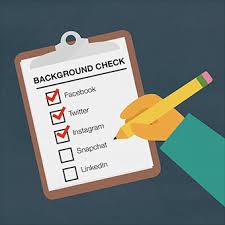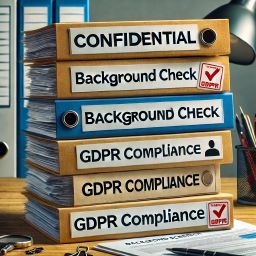

The standards allow online and paperless vetting processes, supporting efficient procedures.
Turnaround Times and Processing Standards
3.Organizations must follow both EU-wide data protection legislation and country-specific privacy requirements.
International Background Checks for Candidates in Ireland: A Guide
4.Event Management: Complete background checks help keep attendees safe by screening all workers, from planners to security staff.
1.Standard turnaround times for European background checks range from 5-10 working days.
Pre-employment vetting in Ireland covers screening processes, from European Criminal Record Checks to consumer credit assessments and specialized airside security clearances.
1.Pre-screening Preparation: Check that candidates submit all required documentation correctly to minimize back-and-forth communication.
PSA vetting takes 21 days, though this can reduce to 10 days when applicants submit all required information promptly.
Are International Qualifications Verified Differently From Irish Qualifications?

3.Retail: Standards reduce risks of cash handling and theft, protecting assets and staff.
Background Checks Ireland
The processing period for ECRCs takes 5 to 10 working days. This quick service matters in industries needing rapid staffing decisions.


Criminal Record Verification Process
Pre-employment vetting in Ireland includes background screening processes that follow national and EU regulations. Organizations conduct criminal record checks through the ECRC system, which provides information from 26 EU member states. The process involves consumer credit checks, verification of previous employment, and specific security clearances for roles like airport access. Standard processing times range from 24 hours to 10 working days. Different industry sectors have specific requirements and compliance measures.
Adherence to regulations: The service must follow local and international compliance requirements, including the General Data Protection Regulation.

Evaluating the Quality of Background Check Services
After financial judgments review within Consumer Credit Stress Checks, the components of Consumer Credit Reports provide additional detail.
4.Credit History Check: This reviews the candidate's financial history, particularly for positions in the finance sector.

Can You Appeal a Negative Result on a Background Check?
Frequently Asked Questions
4.Proof of address
Vendor ScreeningA background check in Ireland involves reviewing a person's criminal, financial, or personal records to assess their suitability for a role or position.
The duration can vary but typically takes between 1-2 weeks, depending on the type and complexity of the check.
Garda vetting is a specific type of background check required in Ireland for individuals working with children or vulnerable adults, involving checks against police records.
Yes, you must obtain consent from the individual before conducting any background checks in Ireland.
Not for all employees, but certain sectors such as healthcare and education may require comprehensive checks.
It includes checking for any criminal convictions or offences recorded against the individual.
Yes, individuals can request their own background checks in Ireland for personal review or to prepare for employment screenings.
Skipping background checks can lead to hiring unsuitable candidates, which may result in legal and reputational risks.
Yes, police clearance is a general criminal record check, while Garda vetting is specific to roles involving vulnerable groups and includes more detailed investigations.
You can request transcripts or degrees directly from educational institutions or use third-party services that specialize in educational verifications.
Information about spent convictions, certain types of personal data, and other protected characteristics under GDPR is off-limits unless specifically relevant and lawful to access.
International checks may involve additional complexities such as different laws, languages, and longer processing times.
No, background checks do not affect your credit score as they do not involve a credit inquiry that would impact the score.
Best practices include securing data in compliance with GDPR, limiting access to authorized personnel, and ensuring data is stored for only as long as necessary.
It depends on the industry and role, but typically every 2-3 years or when significant changes occur in the individual’s role or responsibility.
While not specific by law, many IT positions require checks due to access to sensitive or proprietary information.
GDPR regulates the processing of personal data, ensuring that background checks are conducted in a lawful, fair, and transparent manner.
Yes, but it must be done lawfully and with the individual’s consent, considering the relevance to the role.
Penalties can include fines, legal actions, and reputational damage, depending on the severity of the non-compliance.
Remote work has increased the importance of thorough background checks, especially for those in positions of trust or handling sensitive data.
Best practices include conducting similar checks as for permanent staff, especially if they have access to sensitive or critical areas.
Ensuring fairness involves following consistent procedures, obtaining consent, and allowing candidates to dispute inaccuracies.
Yes, it’s recommended to tailor background checks based on the specific risks and requirements of each position.
Signs include transparency about services, compliance with legal standards, positive reviews, and strong data protection practices.
Handling involves assessing the relevance to the job, discussing findings with the candidate, and considering legal and ethical implications.